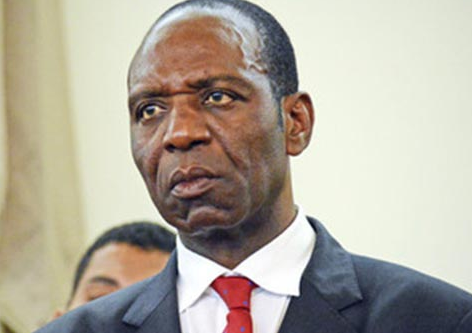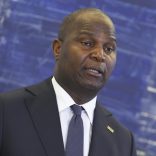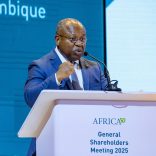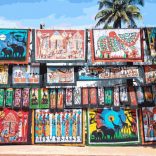Mozambique: President Chapo heads to Japan for TICAD summit, bilateral talks
PM confident that forecast growth rate can be achieved

File photo / Prime minister Carlos Agostinho do Rosário
Mozambican Prime Minister Carlos Agostinho do Rosario on Tuesday declared his confidence that the country can achieve a economic growth rate of 5.3 per cent in 2018.
Concluding a two day debate in the Mozambican parliament, the Assembly of the Republic, on the government’s proposed 2018 plan and budget, Rosario said “although challenges prevail, related to the vulnerability of our economy to internal and external shocks, we believe that we will consolidate macro-economic stability in 2018, and attain the 5.3 per cent growth rate”.
He based this optimism in part on determination “to achieve definitive peace. Peace must remain at the top of our priorities since it is a structuring factor for our country’s continuing growth”.
A truce declared on 27 December last year by Afonso Dhlakama, leader of the rebel movement Renamo, has held throughout 2017, with no further clashes between Renamo and government forces and no Renamo ambushes on the country’s roads. But no agreement has yet been reached on Renamo’s demand that officers in its militia should be given senior positions in the Mozambican armed forces (FADM) and the police. The matter is still under discussion in a working group set up between Renamo and the government.
Rosario also stressed commitment to “broadening the productive base, through diversifying our economy”, and to “increasing production and productivity, particularly throughout the agricultural value chain, since this sector employs the majority of the population”.
The Prime Minister also insisted on “efficient allocation of resources and increased quality of public expenditure so that each metical spent generates a greater impact on the life of the population”.
He was also optimistic that inflation will continue to fall. Inflation between January and November this year, as measured by the consumer price indices for the three largest cities (Maputo, Nampula and Beira) was 7.15 per cent. In the same period in 2016 it was 26.35 per cent.
The average 12 monthly inflation rate fell from 22.33 per cent in May to 16.65 per cent in November, and Rosario was confident that by the end of 2018 this rate would drop to 11.9 per cent..
A fall in the inflation rate “is a good sign”, he said, “since it creates the conditions for a reduction in the cost of living and in the interests rates in the banking system”.
In the parliamentary debate, opposition deputies had queried how the government had found the money to pay for an extra 3,000 teachers. In the first draft of the plan and budget, the government only proposed to recruit 2,213 new teachers for the 2018 school year – a dramatic decline from the over 8,000 recruited at the start of 2017. Yet the amended plan presented on Monday spoke of recruiting 5,213 teachers.
Rosario said this was possible because of “savings resulting from measures to rationalise public expenditure”. These measures, announced by Finance Minister Adriano Maleiane last week, bring austerity to senior officials by eliminating or cutting many of the privileges they have enjoyed (including rent, transport, fuel and communications subsidies). These cuts are expected to result in savings of 7.2 billion meticais (about 120 million US dollars) in 2018.
Rosario reaffirmed the government’s commitment to reducing the pupil/teacher ratio in the first five years of primary education from the current 60 pupils per teacher to 57 by 2019.
He was confident that the government could also distribute 700,000 school desks by the end of 2019. Timber seized from illegal loggers is being used to make the desks “to ensure that our children do not study sitting on the floor”.
Rosario pledged that the government “will continue actions to guarantee transparency and accountability in the management of public assets, in the framework of the fight against corruption”.
He told the deputies that the government will pursue measures to increase revenue, and will “strengthen careful management of financial and human resources so that, with the few resources available, we can provide more and better services to the public”.
Also Read: Mozambique to register economic growth below 4% to 2020, default limits investment – UN













Leave a Reply
Be the First to Comment!
You must be logged in to post a comment.
You must be logged in to post a comment.